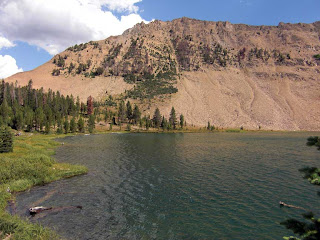Photographs of Pioneer Women
You can see from their faces
Life was not funny,
The streets, when there were streets,
Tugging at axles,
The settlement ramshackle as a stack of cards.
And where there were no streets, and no houses,
Save their own roof of calico or thatch,
The cows coming morning and afternoon
From the end-of-world swamp,
Udders cemented with mud.
There is nothing to equal pioneering labour
For wrenching a woman out of shape,
Like an old willow, uprooted, thickening.
See their strong arms, their shoulders broadened
By the rhythmical swing of the axe, or humped
Under loads they donkeyed on their backs.
Some of them found time to be photographed,
With bearded husband, and twelve or thirteen children,
Looking shocked, but relentless,
After first starching the frills in their caps.
Ruth Dallas




